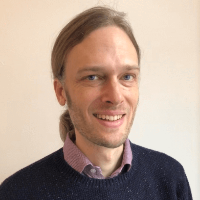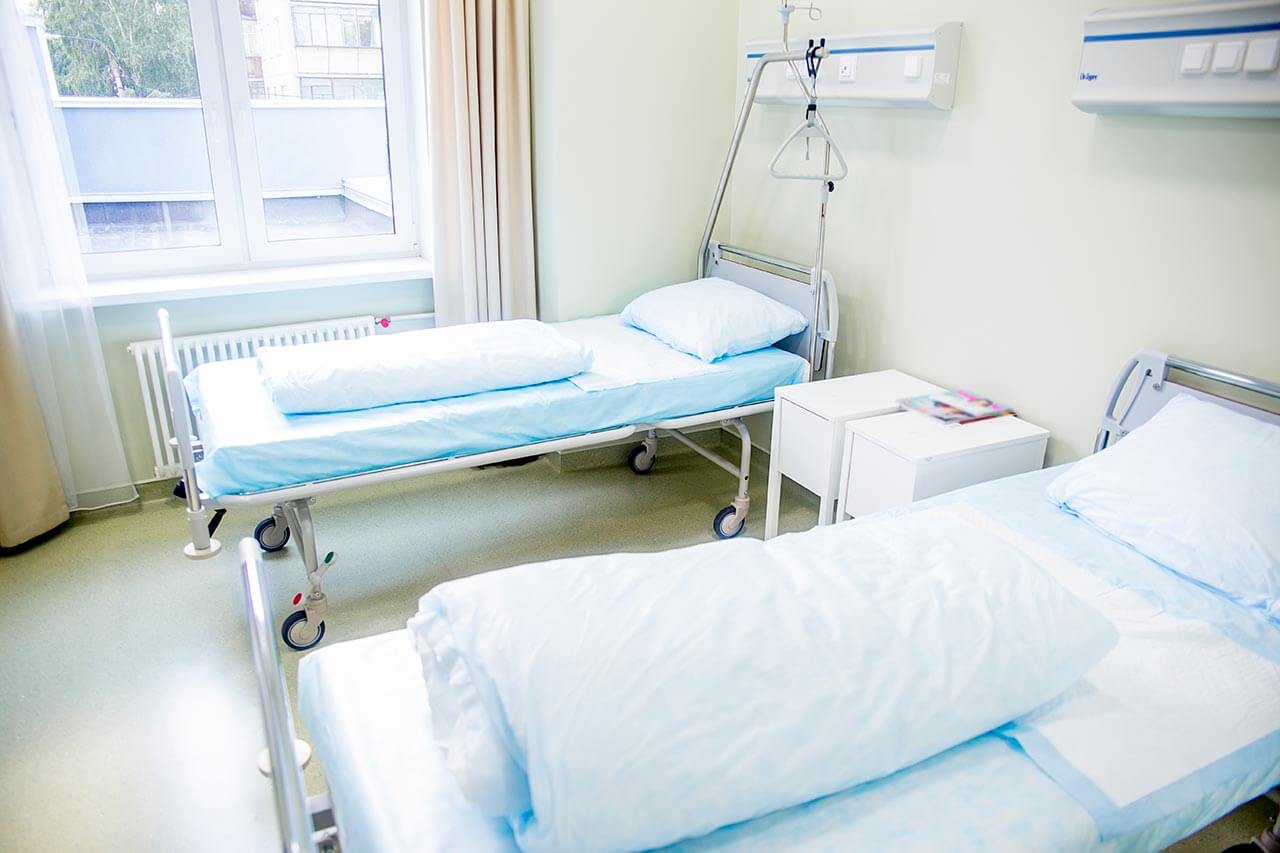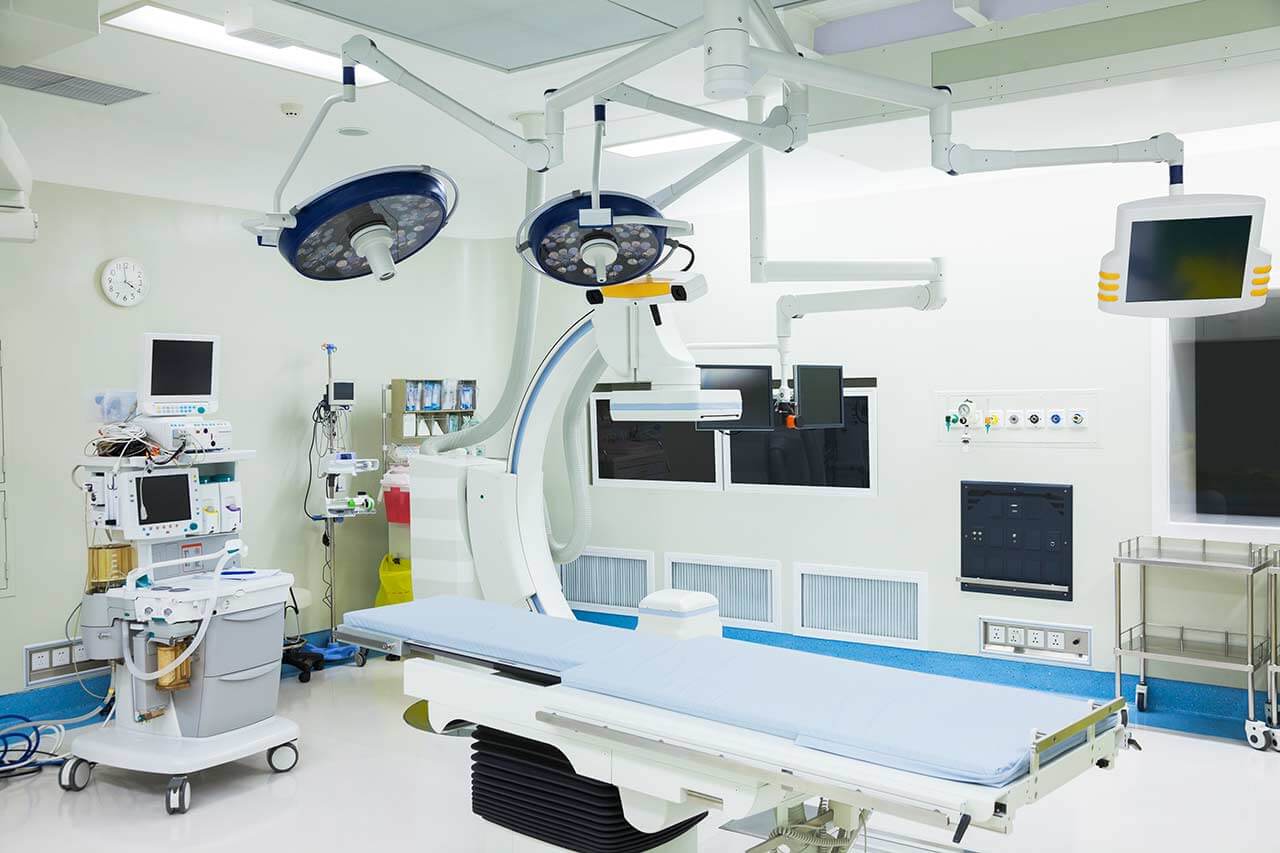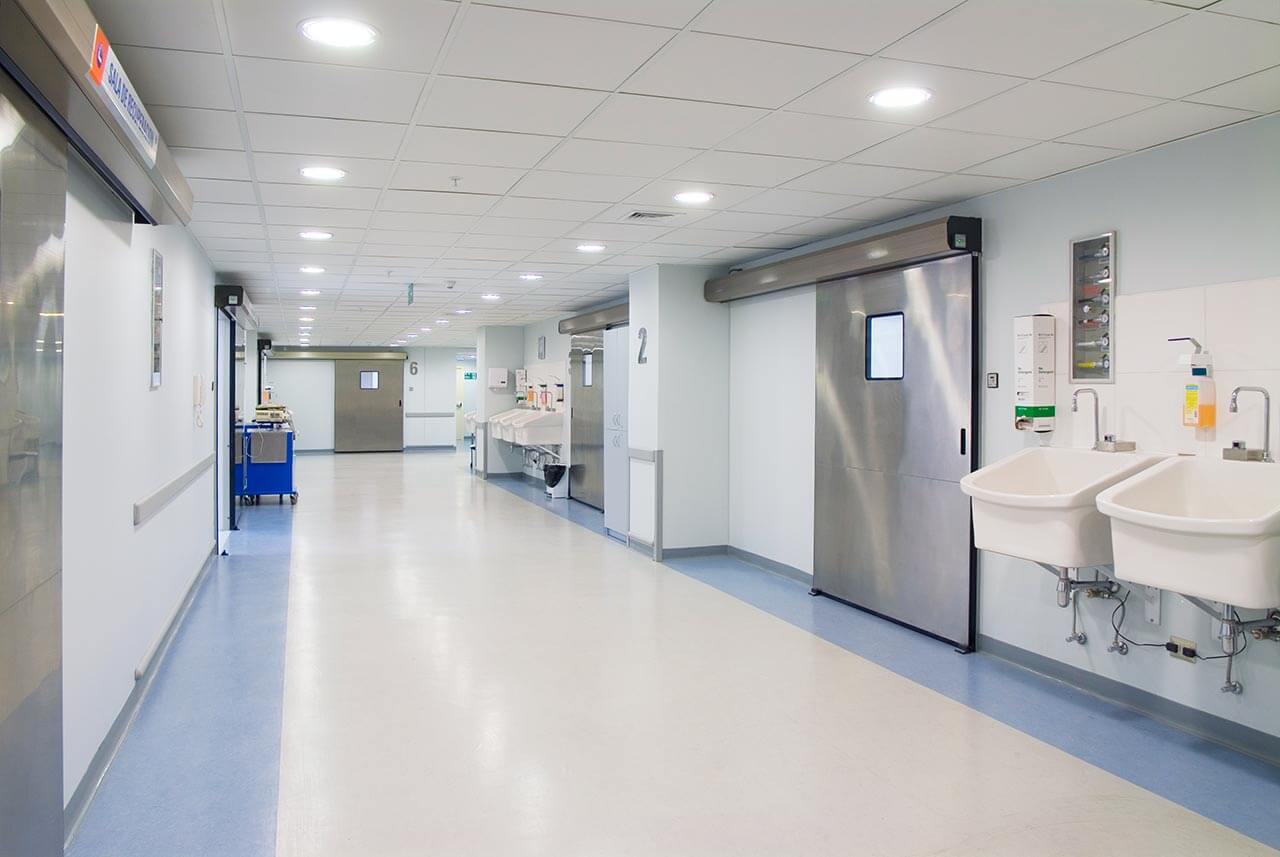
The program includes:
- Initial presentation in the clinic
- clinical history taking
- physical examination
- laboratory tests:
- complete blood count
- general urine analysis
- biochemical analysis of blood
- TSH-basal, fT3, fT4
- tumor markers
- indicators of blood coagulation
- CT scan / MRI of the abdomen
- abdominal ultrasound scan
- 1 course of chemotherapy
- nursing services
- consultations of leading experts
- explanation of individual treatment plan
How program is carried out
During the first visit, the doctor will conduct a clinical examination and go through the results of previous laboratory tests and instrumental examinations. After that, you will undergo an additional examination, including laboratory assessment of liver and kidney function, ultrasound scan. Based on the received results, the doctor will elaborate the chemotherapy regimen. If necessary, related medical specialists will be involved in the elaboration of a treatment regimen (tumor board).
Chemotherapy is carried out as the day hospital procedure, without mandatory admission to the hospital. After the placement of a venous catheter, you will stay in a comfortable ward. An infusion system will be connected to the catheter, through which the required drug or a drug combination will be administered. All drugs are administered by intravenous drip, slowly, so the total duration of the infusion can be up to several hours. All this time, doctors and nurses will monitor your health condition closely.
After the course of chemotherapy, you will stay under medical supervision in the ward for a few more hours. If your general condition is good, your doctor will allow you to leave the hospital. You will receive the medical report with detailed recommendations regarding further treatment. In the future, you will be able to have a distant consultation with your attending physician and schedule the next course of chemotherapy, if necessary.
Required documents
- Medical records
- MRI/CT scan of the abdomen and pelvis (if available)
- Biopsy results (if available)
Service
You may also book:
 BookingHealth Price from:
BookingHealth Price from:
About the department
The Department of Pediatric Oncology and Hematology at the University Hospital Oldenburg provides a full range of medical services in its areas of specialization. The department is certified as the Children's Cancer Center in accordance with the OnkoZert standards and is also part of the European Reference Network. In addition, the department has been awarded the Ausgezeichnet. FÜR KINDER quality certificate, which is the most prestigious certificate in the segment of children's hospitals in Germany. The department treats young patients with solid tumors of various localizations, leukemia, and benign diseases of the hematopoietic system. The department has state-of-the-art medical equipment and has 12 beds. The medical facility takes care of the comfort of young patients, so it has wonderful play areas so that children can take a break from the therapeutic process. The medical team of the department uses only highly effective treatment methods in their work and follows the recommendations of the Society for Pediatric Oncology and Hematology (GPOH). It should be noted that the department has been operating for over 150 years and enjoys an excellent reputation in the national and international medical arena. The Head Physician of the department is PD Dr. med. Carsten Friedrich.
The department most often treats children with leukemia. This malignant disease is characterized by systemic damage to the bone marrow, in which healthy blood leukocytes are replaced by altered cells. Abnormal leukocytes do not perform their function and at the same time continue to actively divide, spread with the bloodstream, penetrate all organs, and cause pathological changes. Leukemia in children is manifested by rapid fatigue, periodic increases in body temperature without apparent cause, loss of appetite, weight loss, and other symptoms. Diagnosis for suspected leukemia includes a clinical examination, after which the pediatric oncologist listens to the complaints of the young patient and performs a complete blood count, a coagulogram, and a bone marrow puncture with subsequent cytological and cytochemical examinations; instrumental diagnostics are also performed: ultrasound scans, X-ray scans, and CT and/or MRI scans. Based on the results of the preliminary diagnosis, an individual treatment regimen is prescribed. An integral part of the therapeutic process is chemotherapy, the duration and intensity of which is determined by the treating oncologist. In some clinical situations, targeted therapy and radiation therapy may be used. The last-line treatment is a bone marrow transplant.
The specialists at the medical facility have excellent qualifications in the treatment of neuroblastoma, a malignant neoplasm that develops from the cells of the nervous system. Neuroblastoma is an aggressive malignant neoplasm with a tendency to grow rapidly and metastasize. Neuroblastoma usually develops in children under the age of 5 and is the most common type of solid tumor outside the brain in children. Neuroblastoma is most commonly located in the abdominal cavity and adrenal glands, but can also develop in the neck, chest, or pelvis. Diagnosis of a child with suspected neuroblastoma begins with a clinical examination and a series of laboratory tests; a neurological examination is also performed to assess the functions of the brain and nervous system as a whole, including memory, vision, hearing, muscle strength, balance, coordination, and reflexes. Instrumental studies are an integral part of the diagnostic process: X-ray, ultrasound, CT, and MRI. When planning the treatment, the doctors of the department focus on the risk group for neuroblastoma: it can be low, intermediate, or high risk. The risk group is determined based on the stage of the tumor, biochemical markers, genetic characteristics of the tumor cells, and the child's age. If the risk is low, surgical removal of the tumor and follow-up is sufficient; if the risk is intermediate, surgery and chemotherapy are sufficient; if the risk is high, the child needs intensive treatment that combines several methods (for example, surgery, chemotherapy, immunotherapy, and/or radiation therapy).
The department also regularly admits young patients with brain tumors, Wilms' tumor, lymphoma, rhabdomyosarcoma, retinoblastoma, osteosarcoma, and Ewing's sarcoma. For the treatment of the above oncological diseases, the department's medical team successfully performs surgical procedures, chemotherapy, radiation therapy, targeted therapy, immunotherapy, and other modern therapeutic procedures. A personalized treatment plan is developed for each child based on the diagnosis, stage of the oncological process, age of the young patient, and other factors.
The department's specialists understand that a cancer diagnosis is a serious challenge for a child and their family, so comprehensive support is provided. Qualified psychologists help cope with emotional difficulties, while art and music therapists reveal the creative potential of children. Clowns and animators create an atmosphere of joy and bring smiles to the faces of young patients. The staff strives to ensure that each child feels comfortable and can enjoy pleasant leisure time between procedures.
The department's range of medical services includes the following:
- Diagnostics and treatment of leukemia
- Diagnostics and treatment of neuroblastoma
- Diagnostics and treatment of brain cancer
- Diagnostics and treatment of Wilms' tumor
- Diagnostics and treatment of lymphoma
- Diagnostics and treatment of rhabdomyosarcoma
- Diagnostics and treatment of retinoblastoma
- Diagnostics and treatment of osteosarcoma
- Diagnostics and treatment of Ewing's sarcoma
- Diagnostics and treatment of other oncological and hematological diseases in children
Curriculum vitae
PD Dr. med. Carsten Friedrich graduated from the Charité – Berlin University Medicine. The specialist completed his internship at the University Hospital Hamburg-Eppendorf, followed by a residency in pediatric oncology at the University Hospital Leipzig. Dr. Friedrich's primary interest during this period was to conduct experimental and clinical studies in pediatric neuro-oncology. In 2020, Dr. Carsten Friedrich was appointed Senior Physician in the Department of Pediatric Oncology and Hematology at the University Hospital Oldenburg. The specialist currently holds the position of Acting Head Physician in the Department of Pediatric Oncology and Hematology at the University Hospital Oldenburg.
Photo of the doctor: (c) Klinikum Oldenburg AöR
About hospital
The University Hospital Oldenburg is a multidisciplinary medical complex offering top-notch services of the European standard. The hospital has 20 specialized departments, 15 highly specialized centers, and more than 10 institutes. The hospital provides services in almost all areas of modern medicine: general and abdominal surgery, cardiac surgery, orthopedics, traumatology, cardiology, oncology, dermatology, gastroenterology, gynecology, mammology, urology, and pediatric and adolescent medicine.
The hospital has 832 beds, and many diagnostic and therapeutic procedures are performed on an outpatient basis. More than 150,000 patients are treated here annually, 37,000 of them receive medical care in a hospital setting. The medical complex has a highly professional medical team of more than 2,900 employees and most departments are headed by professors with extensive clinical experience.
The hospital is home to one of the best comprehensive cancer centers in Germany (Nordwestdeutsches Tumorzentrum), certified according to the requirements of the German Cancer Society (DKG). The center successfully treats breast cancer, prostate cancer, colorectal cancer, pancreatic cancer, esophageal cancer, head and neck tumors, skin tumors, and other oncological diseases. The center uses modern cancer treatment methods with proven effectiveness and also offers allogeneic and autologous bone marrow transplantation for the treatment of severe hematologic diseases (European certification JACIE).
The University Hospital Oldenburg is an expert medical facility in robotic surgery. The hospital has a specialized da Vinci Surgery Center, where gastrointestinal, urological, and gynecological diseases are treated with excellence. Patients are operated on by highly qualified professors with in-depth expertise and extensive experience in robotic surgery.
The University Hospital Oldenburg is one of the leading medical institutions in Germany because it offers excellent medical and technical resources, qualified personnel, and a comfortable infrastructure designed with the needs of patients in mind. The hospital's physicians treat patients with complex clinical cases and achieve incredible results.
The basis of medical care in the hospital is humane attitude to the patient, empathy and understanding of his needs. During the therapeutic process, the patient is surrounded by care and, if necessary, receives professional psychological support.
Photo: (с) depositphotos
Accommodation in hospital
Patients rooms
The patients at the University Hospital Oldenburg stay in comfortable single, double, and triple rooms. Each patient room has an ensuite bathroom with a toilet and a shower. The patient rooms have a TV, a telephone, and Wi-Fi. The patient rooms in the pediatric departments are designed in an appropriate interior to make the young patients feel as comfortable as possible. A child can stay in the same room with one of the parents.
The hospital has an excellent infrastructure: there is a pharmacy, a hairdresser, an ATM, and a library with audio books, DVD movies, and board games.
Meals and Menus
The hospital offers delicious and balanced meals three times a day: breakfast, lunch, and dinner. Since 2022, a new menu "Vitalessen" has been introduced here, which excludes the addition of preservatives, dyes, and flavor enhancers to food. The menu takes into account all preferences and wishes of the patients.
There is also a cozy cafe in the hospital, where you can enjoy a tasty snack or a cup of aromatic coffee or hot tea with dessert.
Further details
Standard rooms include:
![]() Toilet
Toilet
![]() Shower
Shower
![]() Wi-Fi
Wi-Fi
![]() TV
TV
Religion
There is a chapel on the ground floor of the hospital where Catholic and Evangelical services are held regularly. Services by representatives of other religions are available upon request.
Accompanying person
Your accompanying person may stay with you in your patient room or at the hotel of your choice during the inpatient program.
Hotel
You may stay at the hotel of your choice during the outpatient program. Our managers will support you for selecting the best option.




